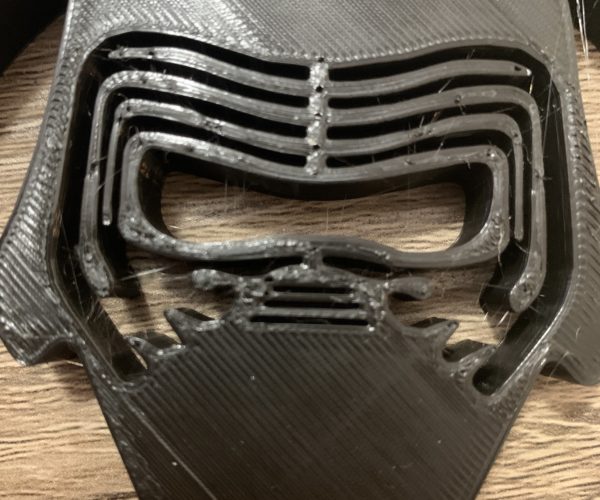Inconsistent top solid infill
My concern is that my top solid surfaces produce a series of inconsistent looking lines. Most of all my prints require a flat top surface and I would ideally like for them to be completely smooth. I typically print with PLA at 190-200C. The top solid infill speed is usually set to 20mm/s and 0.4mm width. I use the default 45 degree infill angle. Top layers are either at 5-7 layers. I print usually at 0.2 layer height or 0.28. Printing with either Mk2S or Mk3S yields same results. Both will have z-height where it needs to be. What I've noticed with all my prints is that when producing solid infills the nozzle will begin in the middle of the print "face". It will print in one direction until there's no more surface. The nozzle then moves and starts on the other side until it meets the middle again. When this happens it forms these lines of build-up or creates a different shade. I know that sometimes this is as a result of heat and speed of the nozzle and become more apparent with darker colors like black.
Here's my question: is there a better way to control where the print actually begins relative to a layer, specifically the top layer? Can I have a print begin on one side of the print as opposed to right in the middle as automatically calculated by the slicer? Will changing the infill angle make a difference?
RE: Inconsistent top solid infill
Known issue, and the only way to deal with it today is to use a different slicer or use a different infill pattern, one less likely to do infill from alternate directions as rectilinear does. Some folk have success with Hilbert infill. Slower, but not prone to directionality.
RE: Inconsistent top solid infill
ps: One of the other available slicer has an "ironing" function... not sure if its Cura or Simplify3D ... but the forces a last pass over the surface to smooth uneven artifacts like these.
